
You might have heard the phrase "plant-based protein" popping up in health and wellness circles. It's more than just a buzzword; it's a lifestyle choice that's been gaining ground due to its numerous health benefits. But what exactly is plant-based protein, and why is it so beneficial for your health? In this article, we will guide you through the world of plant-based protein, exploring its origins, benefits, and sources.
If most people consider you a health nut or you're a fitness enthusiast, you're probably familiar with the term "protein" and its importance in building muscle. However, the term "plant-based protein" may be a little less familiar. The term refers to the protein derived from plant sources like lentils, chickpeas, soy, and quinoa, for example and the introduction of plant-based protein has challenged the traditional notion that protein can only be derived from animal sources like meat and dairy.
Now, you might be wondering: why should you include a plant-based protein in your diet? Well, apart from being a sustainable and ethical choice, plant-based protein brings a slew of health benefits to the table. It's packed with fiber, vitamins, and minerals that help promote overall wellness. Moreover, plant-based proteins are low in saturated fat and free from cholesterol, making them weight-loss friendly and a heart-friendly choice.
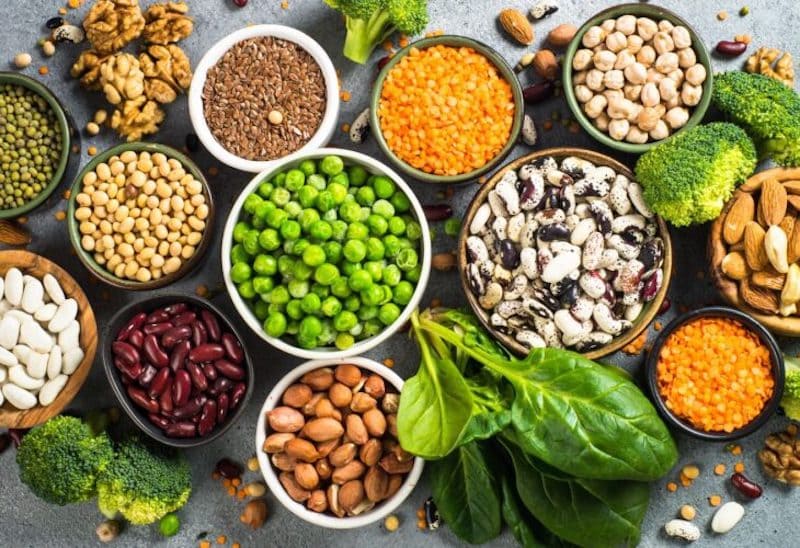
As mentioned, the term "plant-based diet" refers to a diet that focuses on foods derived from plant sources, which can include fruits, vegetables, grains, nuts, seeds, and legumes. While a plant-based diet is primarily vegetarian, it doesn't necessarily mean you're completely eliminating animal products. It's more about shifting your focus towards plant-derived foods and away from animal source protein, hence the term "plant-based".
A plant-based diet is incredibly versatile. You can customize it according to your personal preferences, dietary needs, and ethical considerations. For instance, you can opt for a fully vegetarian or vegan diet, or you can include small quantities of animal products if you prefer. The key is to ensure that the majority of your diet is made up of plant-based foods.
Adopting a plant-based diet can be a significant step towards improving your health and wellbeing. A diet rich in plant-based foods is loaded with essential nutrients and is associated with numerous health benefits, including weight management, improved heart health, and reduced risk of chronic diseases. It's also a more sustainable and ethical way of eating compared to a diet comprised of animal derived products.
Understanding the role of protein in our bodies is crucial to appreciate the importance of plant-based protein. Protein is one of the three macronutrients (along with carbohydrates and fats) essential for our bodies. It's involved in numerous bodily functions, including tissue repair, immune function, and hormone regulation. Protein is also integral to muscle building, which is why it's a necessity in the diet of professional athletes.
Protein synthesis is the process where our bodies produce new proteins. This process is crucial for growth, repair, and maintenance of tissues.
Amino acids are the building blocks of proteins. There are 20 different amino acids, out of which 9 are essential, meaning our bodies can't produce them, so we must find them to include in our diet.
The notion that only animal-based proteins can provide all 9 essential amino acids has been debunked. Various plant-based proteins, either alone or in combination, can provide these essential amino acids. This opens up a world of possibilities for vegetarians, vegans, and anyone looking to reduce their meat intake while ensuring they get their required protein intake.
For instance, grains are low in lysine, one of the essential amino acids, but they are high in methionine. On the other hand, legumes are high in lysine but low in methionine. So, by eating grains and legumes together, you can get all essential amino acids. This concept is known as protein complementation, and it's a great way to ensure a balanced intake of essential amino acids on a plant-based diet.
It’s a common belief that animal-based protein is better for you than animal-based protein, however, this isn't necessarily true. While animal-based proteins are complete proteins (containing all essential amino acids) and have high bioavailability, they also have drawbacks. They are often high in saturated fats and cholesterol, which can contribute to heart disease and other health issues.
Plant-based proteins, on the other hand, offer a healthier alternative. They are lower in saturated fat, free from cholesterol, and packed with fiber, vitamins, and minerals. Although some plant-based proteins may not be 'complete' on their own, as referred to previously in the article, combining different plant-based proteins can ensure you get all 9 essential amino acids.
The environmental impact is another critical difference between plant and animal-based proteins. The production of plant-based proteins requires fewer resources and emits less greenhouse gases compared to animal-based proteins.
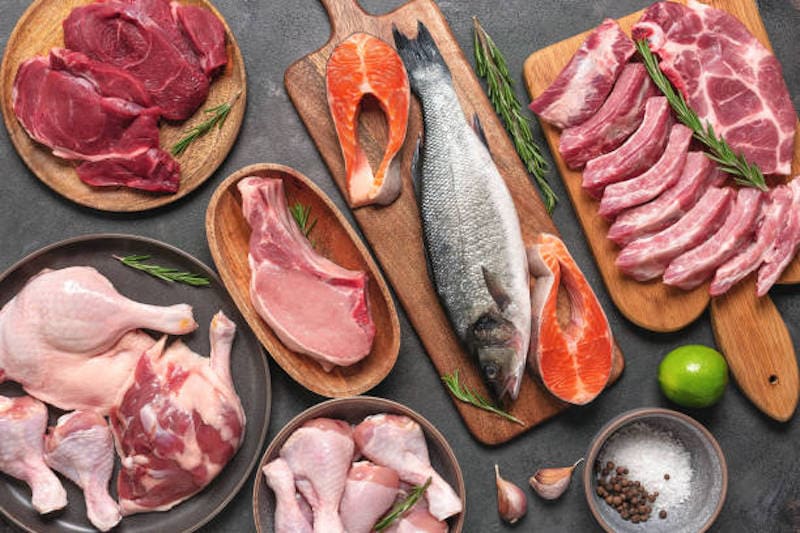
A diet rich in plant-based proteins can provide additional health benefits. The fiber in plant-based proteins promote healthy digestion, aids in weight management, and helps control blood sugar levels and the extraordinarily high nutrient content in plant-based proteins strengthens the immune system.
Plant-based proteins contain anti-oxidants, which work to remove plague from arteries and reduce inflammation.
The abundance of plant-based proteins ensures a diverse and exciting diet for those seeking vegetarian or vegan options. Not only can you choose from legumes such as lentils and chickpeas, but there's also a selection of vegetables like broccoli and spinach that surprisingly contain a good amount of protein. Other notable mentions include grains such as quinoa, and unconventional sources like nutritional yeast and spirulina. Seeds also play a pivotal role, with chia, sunflower, and even pumpkin seeds offering protein benefits.
Every plant-based protein source offers a distinct set of advantages. Take, for example, broccoli – while not as protein-dense as soy, it provides vital antioxidants and vitamin C. Spinach, on the other hand, not only contributes protein but also offers a rich supply of iron and vitamin K. And speaking of soy, it stands out as a complete protein, boasting ample amounts of iron and calcium.
Lentils, versatile and wholesome, are not only rich in protein but also abundant in fiber, promoting digestive health and a feeling of fullness. Similarly, quinoa stands out as a grain that’s not just protein-packed but is also an excellent provider of nutrients like magnesium and manganese. The world of plant-based proteins is vast and varied, ensuring that every meal can be both nutritious and flavorful.
Soy protein deserves a special mention due to its nutritional profile. It's one of the few plant-based proteins that's considered a complete protein, meaning it contains all 9 essential amino acids.
Soy protein comes in various forms, including tofu, tempeh, and seitan.
Tofu, also known as bean curd, is made from soy milk. It's a versatile ingredient that can be used in a variety of dishes, from stir fries to desserts.
Tempeh is made from fermented soybeans, giving it a unique taste and texture. It's an excellent source of probiotics, promoting gut health.
Seitan, although not made from soy, is often grouped with tofu and tempeh due to its meat-like texture. Made from gluten, the main protein in wheat, seitan is a popular meat substitute in vegan and vegetarian cuisine but it's not suitable for those with gluten sensitivity or celiac disease.
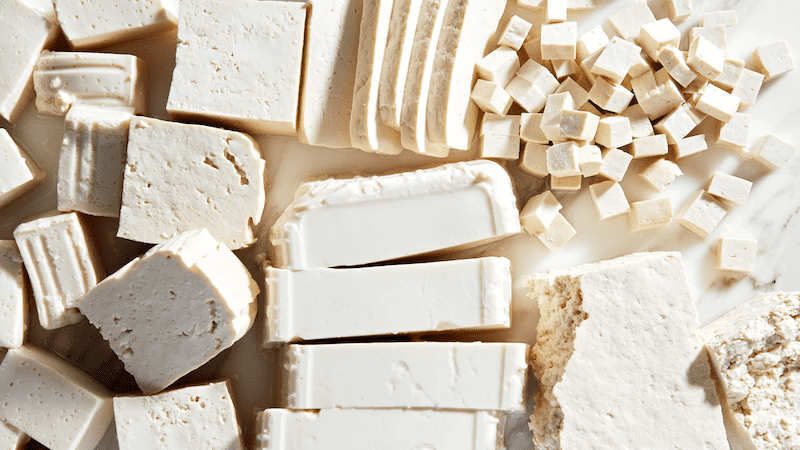
Legumes are a powerhouse of plant-based protein. This family of plants includes lentils, chickpeas, peas, and various types of beans. Not only are legumes packed with protein, but they're also high in fiber, aiding digestion and satiety.
Lentils are incredibly versatile and can be used in a range of dishes, from salads to stews. They are rich in iron, helping to combat fatigue and boost energy levels.
Chickpeas, also known as garbanzo beans, are another great source of plant-based protein. They are packed with essential nutrients, including fiber, magnesium, and folate.
Excellent varieties include:
Desi Chickpeas: These are smaller and darker in color compared to other varieties, often ranging from greenish-brown to black. Their rough coat gives them a distinct texture, and they are known for their richer flavor. Predominantly grown in India, Pakistan, Ethiopia, and Mexico, Desi chickpeas have a high fiber content and are commonly used to make dishes like chana masala and for producing besan or gram flour, a staple in many Indian dishes.
Kabuli Chickpeas: This is probably the most well-known variety in the Western world. They are larger and have a light beige color with a smoother coat. Kabuli chickpeas have a nutty taste and retain their shape well when cooked, making them ideal for salads, hummus, and various Mediterranean dishes. They are primarily cultivated in the Mediterranean, Western Asia, the Americas, and North Africa.
Green Chickpeas: Harvested at an earlier stage than the other varieties, green chickpeas are fresh and resemble green peas in appearance. They are tender, juicy, and have a slightly sweeter taste compared to their mature counterparts. Green chickpeas are rich in vitamins and phytonutrients and can be eaten raw, roasted, or added to dishes like stir-fries and salads.
Quinoa, often hailed as a superfood, distinguishes itself from other grains with its exceptional protein content. Unlike many plant-based sources, quinoa is recognized as a complete protein, meaning it contains all nine essential amino acids that the body cannot produce on its own. This grain goes beyond just protein; it's a treasure trove of dietary fiber, which aids in digestion and promotes satiety. Additionally, quinoa boasts a spectrum of vital minerals and nutrients, with magnesium, iron, and manganese taking the lead. Its health benefits, combined with its ability to adapt to various dishes, make it a staple in health-conscious diets.
The culinary applications of quinoa are extensive, making it a favorite among chefs and home cooks alike. It can effortlessly be the star of salads, bringing a nutty flavor and a slightly crunchy texture. When incorporated into soups, it offers a hearty and wholesome element. Moreover, when served as a side dish, it provides a fluffy and light alternative to traditional grains. Because of its unique taste and texture, reminiscent of a cross between rice and couscous, quinoa has become a sought-after substitute for rice in many dishes, both for its health benefits and its delightful palate experience.
Apart from the more common sources, there are other plant-based proteins worth exploring. Pea protein, hemp protein, and rice protein are becoming increasingly popular, particularly in the form of protein powders.
Pea protein is a great source of iron, and it's a good option for those with allergies as it's hypoallergenic.
Hemp protein is packed with essential fatty acids, making it a heart-friendly choice.
Rice protein, although not a complete protein on its own, can be paired with other plant-based proteins to ensure a balanced amino acid profile.
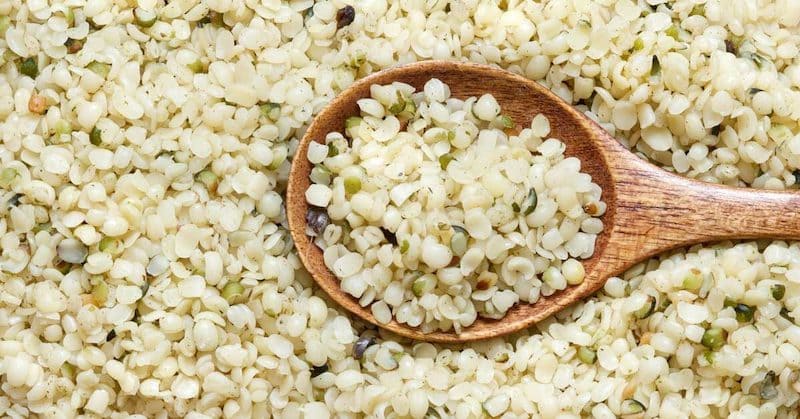
When it comes to plant-based proteins, don't be afraid to think outside the box. Unconventional sources like nutritional yeast, spirulina, and nut butters can also contribute to your protein intake.
Nutritional yeast, with its cheesy flavor, is a popular ingredient in vegan cooking. It's packed with protein and is a great source of B vitamins.
Spirulina, a type of blue-green algae, is a complete protein and is packed with vitamins and minerals.
Nut butters, such as almond butter or peanut butter, are not only protein-rich, but also provide healthy fats and fiber.
Seeds are small but mighty sources of plant-based protein. Chia seeds and sunflower seeds are particularly noteworthy for their protein content.
Chia seeds are not only protein-rich, but they're also packed with fiber and omega-3 fatty acids, promoting heart health. They can be added to smoothies, oatmeal, or salads for a protein boost.
Sunflower seeds, apart from being protein-rich, are also a great source of vitamin E and selenium, promoting skin health and boosting immunity.
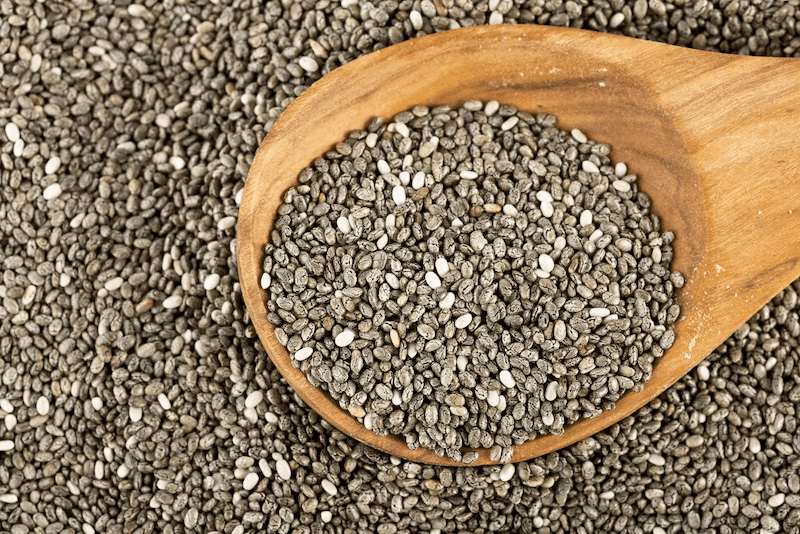
While whole foods should be the primary source of nutrients, protein isolates can be a convenient way to boost protein intake, particularly for athletes or those with higher protein needs. Protein isolates are a form of dietary supplement where the protein has been separated from the other components of the food.
For instance, pea protein isolate or soy protein isolate are commonly used in protein powders for weightlifters. They provide a concentrated source of protein, and they're often enriched with other nutrients. However, it's important to use them as a supplement, not a replacement for a balanced diet.
Also, always opt for high-quality supplements from reputable brands to ensure safety and efficacy.
A plant-based protein regimen offers a diverse range of choices to suit multiple dietary requirements. Whether you're navigating a gluten-free, dairy-free lifestyle, or exploring meat substitutes, a suitable plant-based protein awaits you.
For gluten-free enthusiasts, a variety of foods like lentils, chickpeas, quinoa, along with most nuts and seeds, stand ready to enrich their diet. Those eschewing dairy can gravitate towards plant-derived proteins such as tofu, tempeh, and an array of nut butters. Meanwhile, those on the hunt for alternatives to meat can delve into options like seitan, tempeh, and textured vegetable protein, which is derived from soy, offering a meaty texture and flavor.
Apart from the health benefits, plant-based eating also has an ethical side. It's a more sustainable way of eating compared to a diet heavy in animal products.
The production of plant-based proteins requires fewer resources, including land, water, and energy. It also emits fewer greenhouse gases. By opting for plant-based proteins, you're not only taking care of your health, but you're also contributing to the health of our planet.
Moreover, plant-based eating can be a more humane choice, as it reduces the demand for animal products, contributing to less animal suffering and exploitation.
If you're not ready to fully commit to a plant-based diet, the flexitarian diet can be a good starting point. The flexitarian diet is a more flexible approach to vegetarianism. It encourages a plant-based diet but allows occasional intake of meat and other animal products.
The flexitarian diet not only provides the health benefits of a plant-based diet but also permits more flexibility, which can make it achievable and sustainable in the long run. It's a balanced approach to protein intake, allowing you to reap the benefits of both plant-based and animal-based proteins.
Making the transition to a plant-based protein diet can be a significant step towards better health, a more sustainable lifestyle, and ethical eating. The key is to start small and make gradual changes. Start by including more plant-based proteins in your meals, explore new recipes, and find what works best for you.
Remember, a plant-based diet doesn't have to be all or nothing. Even small changes can make a big difference. Whether you choose to go fully vegetarian, adopt a flexitarian diet, or simply reduce your meat intake, you're making a positive impact on your health and the health of our planet. So why not give plant-based protein a try? The journey from nature to nutrition might be simpler than you think.
Ready to transform your land into a high-yield, sustainable farm? Let Crop Circle Farms design and build a custom, low-impact, and water-efficient farm tailored to your needs. Double your income and cut your costs in half! Contact Us
Help us expand our mission to revolutionize agriculture globally. We are seeking partners to implement Crop Circle Farms to feed people in need. Together, we can build scalable food production systems that save water, reduce costs, and feed thousands of people. Contact Growing To Give